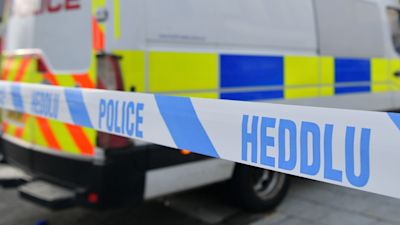All four Welsh police forces fail to meet 999 response targets, new data reveals

None of the four Welsh police forces are currently meeting their 999 response targets, according to new data.
The aim is to respond to 90% of calls in less than 10 seconds, but research has shown an average of 71% were answered in this time.
Among the four Welsh forces, Dyfed Powys police ranked the highest with an average answering time of 10.1 seconds - 81% of which were within the target.
However, data for South Wales police saw the worst results with an average response time of 21.6 seconds. It found just 71% of calls were answered within 10 seconds, and 11% taking longer than one minute.
Across the UK, only one police force - Avon and Somerset - met the standard according to national statistics released for the first time by the Home Office.
The National Police Chiefs’ Council (NPCC) lead for contact management, Assistant Chief Constable Alan Todd, explained that a lag in connecting calls can contribute to waits but that “this isn’t for a member of the public to resolve”.
“We want the public to have access to the data as part of policing being open and transparent.
“This is the first time police forces and the public have been able to see the time it takes to answer 999 calls from the call being made by the public, it being connected to the police by BT and local providers, to it being answered by police call handlers.”
Welsh police force results:
*The list is ordered alphabetically and reads, from left to right: name of police force; average answering time in seconds; percentage of calls answered under 10 seconds; percentage of calls answered between 10 and 60 seconds; percentage of calls answered after 60 seconds.
Dyfed Powys 10.1 81% 16% 3%
Gwent 16.1 80% 14% 6%
North Wales 8.9 78% 21% 2%
South Wales 21.6 71% 18% 11%
The Association for Police and Crime Commissioners local policing leads Alison Hernandez and Jeff Cuthbert said the data shows “the demand for policing and the volume of calls” across the country.
“Police and Crime Commissioners are committed to supporting excellence in policing and will use this data to continually drive forward improvements and hold the police to account on behalf of the public,” they added.
The Freedom of Information request (by the BBC) also found police forces across the country are 28% slower in attending Grade 1 emergencies - taking three minutes longer on average to arrive at serious incidents.
The request also suggests the number of recorded crimes leading to a charge or court summons for a perpetrator fell by 40% for the last seven consecutive years, up to March 2021.
Discussing the findings, Home Secretary Priti Patel said: “The public deserve to know that their local police force will be at the end of the phone, ready to leap into action at seconds’ notice to protect them from harm.
“Fundamentally, publishing this data is about driving up standards in our incredible emergency services even further, so that the public can have every confidence in the police’s ability to save lives and keep our streets safe.
“We can now see where forces are excelling and where vital improvements need to be made and I thank the police for their commitment to ensuring we maintain the best emergency services in the world,” she added.